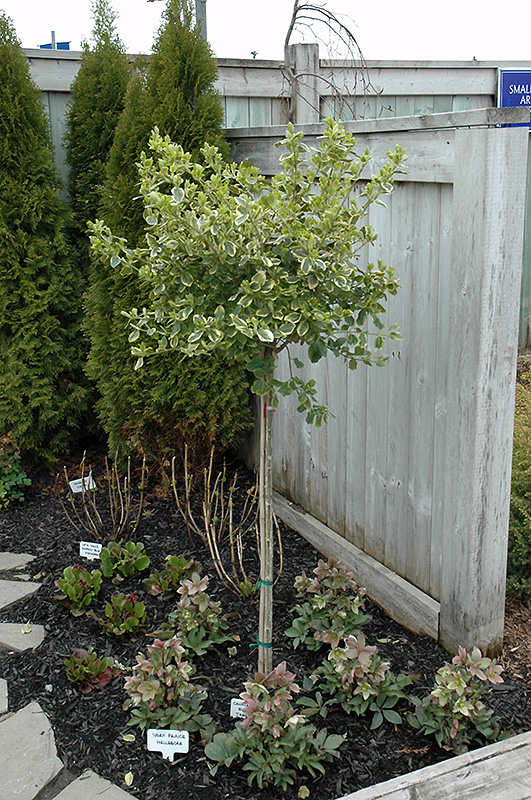Canadale Gold Wintercreeper (tree form)
Euonymus fortunei 'Canadale Gold (tree form)'
Height: 5 feet
Spread: 24 inches
Sunlight:
![]()
![]()
![]()
Hardiness Zone: 4
Other Names: Wintercreeper Euonymus
Description:
An attractive, tree form of the cultivar, featuring stunning gold variegated evergreen leaves all season long; a superb color accent for almost any garden or landscape application
Ornamental Features
Canadale Gold Wintercreeper (tree form) has attractive gold-variegated dark green foliage with hints of creamy white which emerges light green in spring on a tree with a distinctive lollipop-like form. The glossy oval leaves are highly ornamental and remain dark green throughout the winter. It produces pink capsules from mid to late fall.
Landscape Attributes
Canadale Gold Wintercreeper (tree form) is an evergreen tree, selected and trained to grow in a small tree-like form with the primary plant grafted high atop a standard. Its relatively fine texture sets it apart from other landscape plants with less refined foliage.
This tree will require occasional maintenance and upkeep, and can be pruned at anytime. Gardeners should be aware of the following characteristic(s) that may warrant special consideration;
- Insects
Canadale Gold Wintercreeper (tree form) is recommended for the following landscape applications;
- Mass Planting
- Hedges/Screening
- General Garden Use
- Groundcover
Planting & Growing
Canadale Gold Wintercreeper (tree form) will grow to be about 5 feet tall at maturity, with a spread of 24 inches. It tends to be a little leggy, with a typical clearance of 3 feet from the ground, and is suitable for planting under power lines. It grows at a fast rate, and under ideal conditions can be expected to live for approximately 30 years.
This tree performs well in both full sun and full shade. It is very adaptable to both dry and moist locations, and should do just fine under average home landscape conditions. It is not particular as to soil type or pH. It is highly tolerant of urban pollution and will even thrive in inner city environments, and will benefit from being planted in a relatively sheltered location. This is a selected variety of a species not originally from North America.

